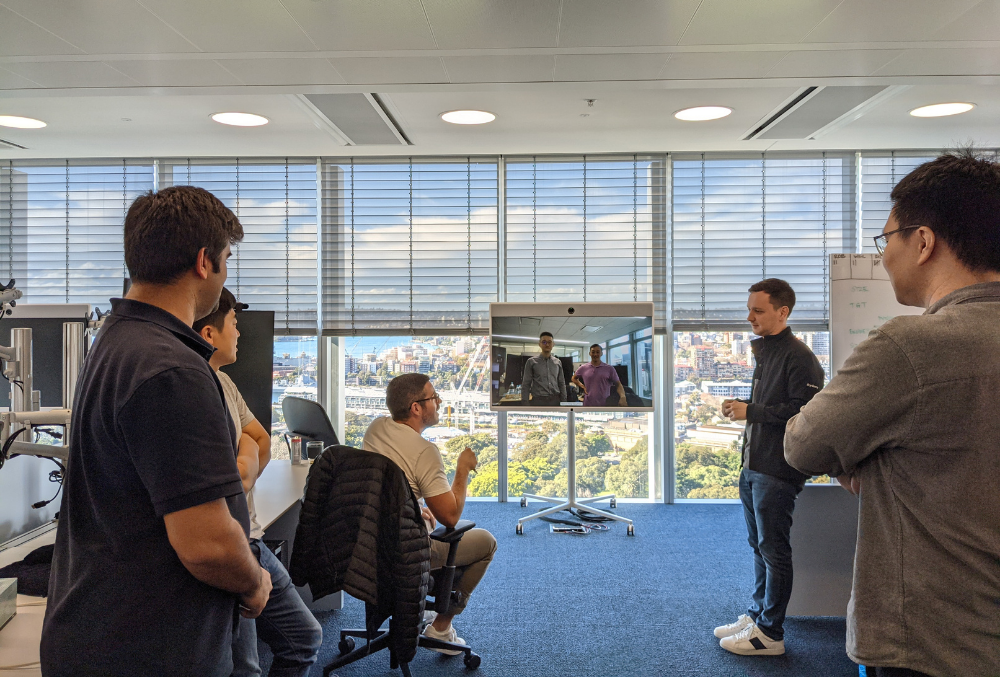Citadel Securities
Bill
08.00 AM
I get out of bed and immediately get ready for work, because I value my time in bed more than I value taking my time getting ready. The night before I told myself I would run to work and shower there, but to no one’s surprise I’m not really feeling it this morning. I grab the train in to work and catch up on a bit of Bloomberg news during my commute.
09.00 AM
Arrive at work and pick up a company-provided breakfast and a juice. I spend my morning catching up with colleagues and reading the news over breakfast. Being a global company, a lot of the employees are at work while I sleep, so I spend a while at the start of each day fielding questions from the US and following up on anything I asked them for the night before.
09.30 AM
I try to get an hour of project work in before the trading day starts to begin. This often consists of Python coding, where I get scripts to set up to run for hours on large datasets when I’m busy doing other things (like trading or sleeping).
10.30 AM
We have a team meeting comprising us traders in the Sydney office and our Hong Kong colleagues. We talk through current events and news articles for the stocks we are trading, as well as make general predictions about what we expect will happen. To me, this is one of the most important points of the day, as we aim to agree on ideas like ‘if X happens, we should do Y’, and so on – effectively planning out how we might react in given trading scenarios so that we will be more efficient when the time comes to make snap decisions.

11.00AM
As our team meeting wraps up, we have time for a little bit of fun, so we ask someone to ‘make a market’ on a random topic. This means some will ask a random question to one trader, such as ‘what is the weight of the Eiffel Tower?’, and the chosen trader has to give a buy and sell numbers for what they think the answer is. Every other trader can ‘trade’ against them and offer their market (simulating price discovery on a real exchange). This lets us warm up a bit for the day of trading, and hopefully get some bragging rights over your colleague who didn’t realize just how big the Eiffel Tower is.
11.30 AM
The Hong Kong stock market opens, and I’m glued to the screen trading. I quickly flick through the stocks I monitor to make sure I’m not missing out on opportunities, and that my pricing reflects my positions.

1.00 PM
Still trading but things have quietened down. The office lunch has arrived, so I grab some and eat it at my desk while trading continues. Unfortunately, Hong Kong Exchange’s lunch break isn’t until 2pm Sydney time, so I have the choice to eat a warm lunch during trading or a cold lunch later on.
2.00 PM
The stock market closes for an hour for their lunch break, and I use it as an opportunity to decompress and chat to colleagues in the office. This is partly just catching up with mates, and partly checking on projects and seeing what the current blockers are.
3.00 PM
The market opens again for a quiet lunch session, and I’m only 50% concentrated on the screen. The beauty of automation is that I only need to step in and assist pricing when things are interesting – otherwise I can focus on more helpful work, such as my coding projects.
I have ongoing work to look at pricing new instruments, and during market hours I’m able to transfer these around within our portfolios to ensure these products have the risk metrics which my scripts predict. This allows me to have some pretty instantaneous feedback, and modify my pricing scripts real-time to capture how these products actually move in the market.
5.00 PM
We’re an hour away from market close, and we need to be confident holding these positions overnight now. We have a quick chat between the trading team about what positions we’ll be holding overnight and why – trying to justify to one another the validity of each position – and make our final adjustments to move towards the desired overnight portfolio.
6.00 PM
Trading is over – all of a sudden – and I want to squeeze out a bit more work before I head off for the day. I put my headphones in to block out everyone around me in the office, and smash into more Python scripting. I look back on my To Do list from the previous day and make a new one for the next day (mostly transferring incomplete tasks).
6.30 PM
I leave work sometime between 6:30pm and 7pm, and message my partner to see what the plans for the night are. Often, we’ll go out for a drink with a friend or just by ourselves, but tonight I make a point of going to the gym since I was too slack to run to work yet again.
8.00 PM
Home from the gym and cooking up a quick dinner before relaxing on the couch. I’m a big fan of the local farmers markets on the weekend, so a typical weeknight dinner is just fresh vegetables thrown into a frying pan with some spices. From here until I go to bed, I do a small amount of life admin or call friends to catch up, but mostly just sit on the couch and watch Netflix with my partner.